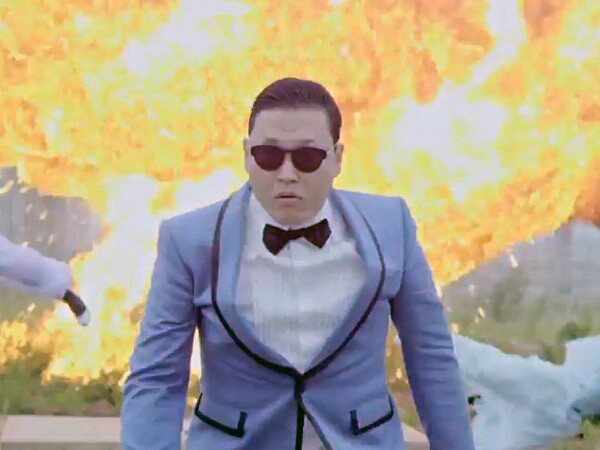The Asian Face of YouTube

It has long been the (Asian) American Dream to be well-represented and recognized in the mainstream, most particularly within the entertainment industry. After all, if Bruce Lee could do it, why can't I? Though we've long left the days of Fu Manchu behind, attempts at diversifying the casting of network (and moreso, cable) television shows each season still come up short. The "racebending" of the 2010 film, "The Last Airbender," where Asian character roles were given to white actors, is still fresh in the minds of many. Likewise, many in the Asian American community were upset when Filipina/Mexican American vocalist Jessica Sanchez was (surprisingly -- or not surprisingly) passed up for this year's "American Idol" title by more-acceptable-to-middle-America singer Phil Phillips.
Then, in the summer of 2012, something happened.
Almost overnight, people suddenly sang -- and danced -- the praises of a 30-something popstar from South Korea who busted out crazy moves and spitted out rhymes in his native tongue. Most of America could not understand what he was saying exactly, but the phenomenon transcended language and culture. Contemporary pop stars from T-Pain to Katy Perry gave PSY's "Gangnam Style" their certified props via Twitter. Whether they found it funny, bizarre, or awesome, it really didn't matter. All that mattered was that they found it.
Before you knew it, fans at Dodger Stadium were going "Gangnam Style" for the Dance Cam in between innings. Even local pop station AMP Radio plays it on the air in heavy rotation. The last time a foreign-language song (Spanish excluded) got mainstream radio airplay was probably Kaoma's Brazilian Portuguese song "Lambada" or Nena's German hit "99 Luftballons" -- and that was all the way back in the '80s.
It was a watershed moment, not just for Korean culture, but for everyone of Asian heritage who wanted to see a familiar (or at least similar) face in the limelight.
All of this possible... because of YouTube.
In Asian communities, it's not a new thing at all. Ever since streaming Internet video technology first became available, YouTube was a way for immigrant music fans to stay connected to their favorite artists back home. For Asian Americans, whose daily lives are based on social networks (both actual and virtual), YouTube became a way to create their own stars: What do Filipino American teens need Justin Bieber for, when they have singer/songwriter A.J. Rafael? And why should Chinese Americans bother with TV sitcoms when they have KevJumba's comedic webisodes? More importantly, YouTube has become a way to circumvent the filter of agents, producers, and executives that stand in impenetrable guard at the goal net of mainstream visibility. Hits, views, comments, shares, and "Like"s are the new success gauges for a demographic long dismissed by the mainstream as "unmarketable."
A couple years ago, a John Mayer song made its long-awaited debut on YouTube, and within hours, a response video in the form of a cover song was posted. Wouldn't you know it, the singer/guitarist performing the cover version was an Asian American. A little attention-starved, aren't we? Yet at the same time there's no one there to stop us.
Of course, streaming video data knows no race, ethnicity, or culture. Many non-Asian teens and twentysomethings -- the digital-bred Millennial generation -- are already versed in Asian culture to a larger extent than their predecessors through their exposure to (and involvement in) the anime and manga subcultures. At an anime-oriented convention I attended in 2004, I dropped by a "karaoke" activity room where the participants -- the majority of which were white Orange County teens -- sang the Japanese lyrics to various anime soundtrack songs. And knew every word.
Obviously not everything put up on YouTube by people of Asian descent turns into viral gold. People hardly ever visit my YouTube channel. But I'm sure there's a formula for viral success. It's probably a delicate balance of uniqueness and familiarity, rounded out by a certain "OMG" factor that's worth passing along. And perhaps underlying all of that, a well-concealed hunger to be recognized.